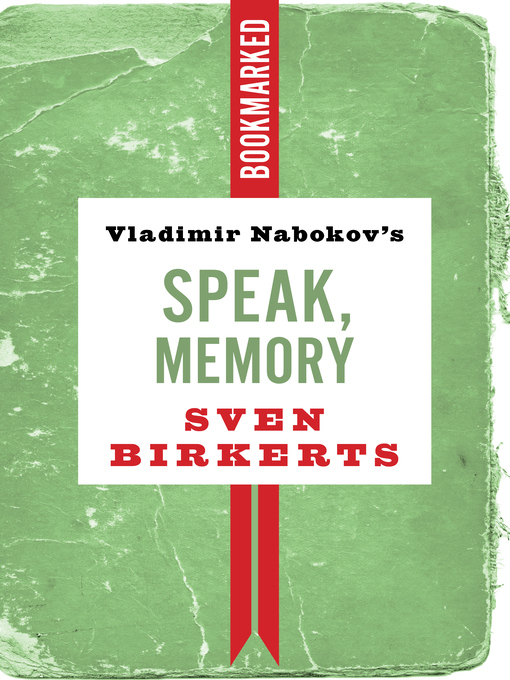"Birkerts reads Nabokov even as he allows Nabokov to read him. This is reading as high art, exhilarating and wise."—CHRISTOPHER BENFEY, author, Red Brick, Black Mountain, White Clay
"Much more than an exercise in literary criticism, this short book increasingly reads as a profound, sensitive, insightful meditation on family, history, time, language, the nature of artistic inspiration, and, in the end, even the meaning of life."—OLGA GRUSHIN, author, The Dream Life of Sukhanov and Forty Rooms
"Like Nabokov's, Birkerts' book is both a nuanced excursion into the nature of memory and a reminder that reading and writing are acts of noticing. This is a supremely alert book about a supremely alert book." —JOAN WICKERSHAM, author, The Suicide Index
Vladimir Nabokov's Speak, Memory is one of the most critically acclaimed memoirs of the twentieth century. In this classic account of his life, Nabokov writes about his idyllic Russian childhood in an aristocratic family, the Bolshevik revolution that led to his exile from Russia, and the path that would eventually lead him to live in America.
In the latest volume in Ig's Bookmarked series, celebrated author and critic Sven Birkerts writes about how Speak, Memory not only intersects with various central life-concerns (exile, serendipity and coincidence, childhood, literary redemption), but is also vital to understanding the workings of memory in literature.

